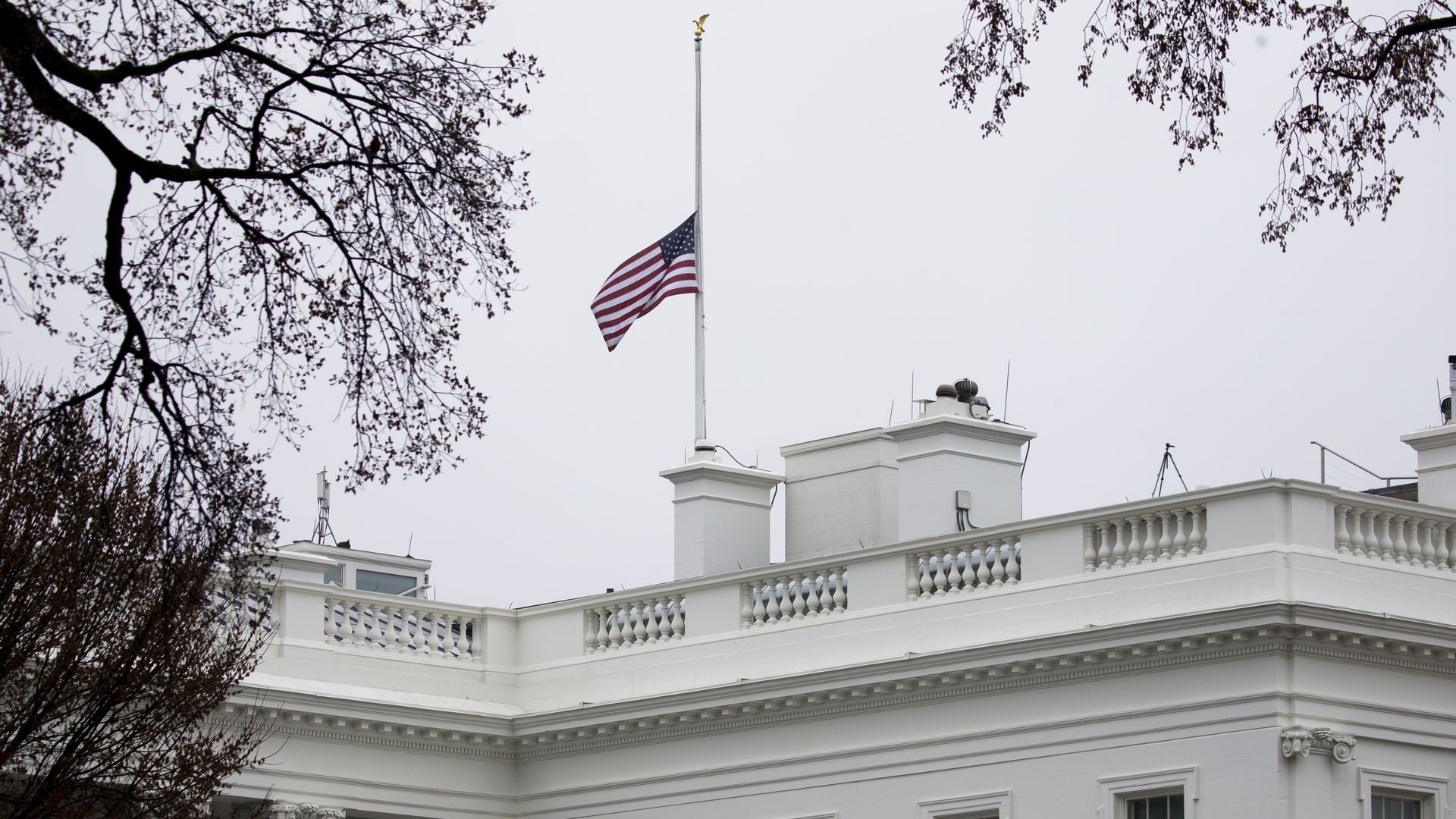Mar 19, 2021 - Politics & Policy
Atlanta shooting tests Georgia's new hate crime law
Add Axios as your preferred source to
see more of our stories on Google.

The flag flies at half-staff over the White House to honor the Atlanta victims. Photo: Michael Reynolds/EPA via Getty Images
